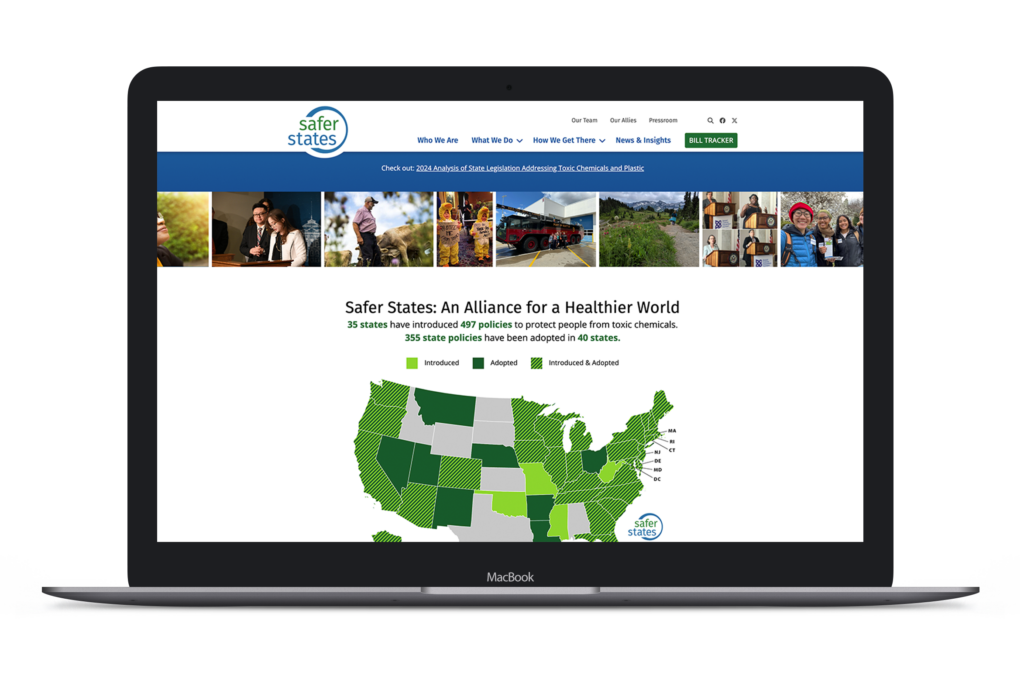 Policy Brief + Recommendations
Policy Brief + RecommendationsSafer States is a national alliance of environmental health groups led by state-based organizations working towards a healthier and more just future.
By addressing critical issues such as toxic chemicals, plastics, and climate change, Safer States empowers collective action through its extensive network and capacity-building initiatives. The organization’s resources focus on ensuring clean air and water, holding polluters accountable, and promoting the development of safer consumer products. Safer States offers valuable tools and support for creating safer solutions for human health and the environment, including a bill tracker that identifies state policies that move the needle toward achieving a healthier world.

This website explores the concept of planetary boundaries, a framework of nine key Earth system processes that humanity must stay within to ensure long-term sustainability and avoid irreversible environmental harm.

This report provides information on PFAS, their widespread presence in US drinking water, associated health risks, and recommendations from the National Academies for clinical guidance and education on PFAS exposure.

The Planetary Health Alliance is a global consortium of over 400 organizations from 60+ countries dedicated to studying and addressing the effects of global environmental change on human health.


Toxic-Free Future is a leading advocate for environmental health, leveraging science, education, and activism to promote strong laws and corporate responsibility that safeguard the health of individuals and the planet.

This article discusses the latest update to the planetary boundaries model, highlighting the inclusion of numerical guideposts for each boundary and emphasizing the interconnected factors influencing Earth’s habitability beyond climate change.
Watch this video for a summary of legislation, scientific findings and more about PFAS “forever chemicals.”

This report discusses concerns about replacing lead service lines with PVC plastic pipes, highlighting the potential health and environmental risks associated with leaching chemicals, urging for thorough consideration and evaluation of alternative piping materials.

This report evaluates the risk of drinking water contamination in Los Angeles County, California, based on the proximity of supply wells to oil and gas wells, highlighting disparities in risk based on race/ethnicity and measures of structural racism.
Pediatric physician, Dr. Nicholas Newman, discusses his experience treating patients impacted by PFAS in this video by the Great Lakes Center for Reproductive and Children’s Environmental Health.

 Health
Health Pollution
Pollution